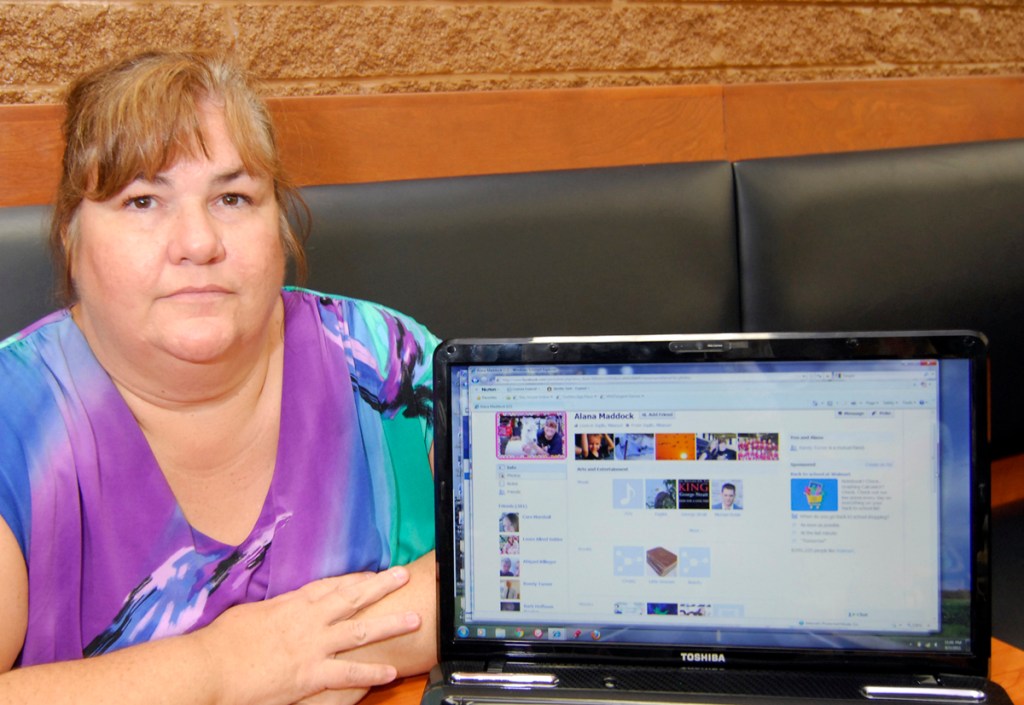Fired and Unhired: Five things not to do on social networking sites
Published 12:30 pm Sunday, January 1, 2012

- Alana Maddock, nurse and cheerleader coach at East Middle School, Joplin, Mo, used Facebook to locate students after the tornado destroyed several schools and much of Joplin on May 22, 2011. Maddock won't be able to communicate with students after a law was passed in Missouri that prohibits teachers from contacting students on Facebook.
I wouldn’t call it the most important event of 2011 but it was certainly the most publicized … Charlie Sheen “winning”!
Trending
Though his talk about possessing tiger blood and not being bi-polar but “bi-winning” seemed like worthless rantings of a middle-aged man who had hit rock bottom, it really held a valuable lesson. Not only don’t do drugs, but don’t do drugs and Facebook.
As common sense as this seems, several people, especially of the younger generation, fail to come to this realization. Sheen is the perfect, blown out of proportion example of what not to do on social-networking outlets such as Facebook, Twitter and YouTube when you are trying to get a job or, in his case, keep one. So, in light of this situation, here are five things not to do on social-networking outlets that will get you unhired and get you fired.
1. Don’t trash your boss on the Internet.
“Don’t do it period,” said Sean Panizzi, branch manager of Team Temps, Personnel Staffing, Inc. “You never want to trash your former employer.”
Sheen learned this the hard way. After bashing “Two and a Half Men’s” co-creator Chuck Lorre on every media and social outlet available to him, Sheen was fired from his $1.8 million-a-week job. Of course, in this circumstance, he’s Charlie Sheen so he’ll bounce back. However, chances are you are not Charlie Sheen. In today’s economy, if you get fired from your job for bad mouthing your boss, your pockets are going to ache a little more than Sheen’s.
Panizzi said talking bad about a former boss is such a liability not only for your current boss but for your future boss as well.
Trending
“If you’re going to talk bad about your boss what are you going to say about them?” Panizzi said.
It is never good to show foul relations between a former company or boss, Panizzi said. In an interview, you should remain professional and never go off on tangents about a former employer.
“It makes you look like a petty individual,” said Panizzi.
2. Don’t drink and Facebook.
Not only don’t literally drink and Facebook — because, let’s face it, that combination can’t possibly turn out well — don’t mix any alcohol-related activity with any social networking outlets at all.
“It shows immaturity. It shows you don’t have sense,” said Panizzi.
That means don’t post pictures of yourself cutely holding a beer at the bar and certainly don’t post videos on YouTube of you doing a keg stand. As amusing as these actions may be to those following your newsfeed, they won’t be so amusing to those companies perusing your social-networking pages trying to figure out what kind of person you are and what kind of employee you will be.
“Companies look at people’s Facebook,” said Panizzi. “It gives them an idea of your moral character.”
Chances are that if you’re applying to be a staff accountant, it probably doesn’t matter that you are also the beer-pong champion.
3. Don’t use Twitter or Facebook while you’re at work.
“Stay off personal stuff at work,” said Panizzi. “Do what you’re paid to do.”
Whether your place of employment has a rule against it or not, it’s just plain unprofessional.
Several businesses around the world have began blocking sites like Facebook from even being accessed on work computers. There’s a reason for this. The time an employee spends on Facebook or Twitter is time the company is paying for that it can never get back.
“We’ve [Team Temps] actually blocked Facebook off our server,” said Panizzi.
Not only does Facebook lower productivity of employees, but it is also dangerous because of its susceptibility to viruses, Panizzi said. He cited one example of an employee who was using Facebook at work. The computer got a virus from an application on Facebook and it cost the company a lot of money to get the problem fixed.
If you’re on Facebook or Twitter while at work, chances are you don’t care very much about the money your company is potentially losing. However, your boss probably cares. Is learning that Ashley needs Starbucks now a good reason to get fired?
4. Clean up your pages.
When you’re applying for a job, a professional resume and appearance is a must. Just as you would clean up your resume to curtail yourself to the needs of that one particular place of employment, you should also do the same to your Facebook and Twitter pages.
“You have to be careful what you post on there in the first place,” said Panizzi. “It never goes away.”
Employers have now begun checking out Facebook pages of applicants to get a better idea of what kind of person they may potentially hire. If your Facebook is full of absurd profanity, provocative pictures and status updates about your current state of inebriation, that’s not going to reflect too well on your character. When it comes down to it, most employers value character over qualification. Anyone can learn a job, but not everyone can learn class.
“You don’t want to advertise all your laundry out there,” said Panizzi.
You could just set your page to private, however, Facebook and Twitter really aren’t that private.
“It’s not as private as people think,” said Panizzi. “They are quite easy to access.”
Would you go into a job interview and say, “Hi, my name is Tom and I really need a shot to get me through this day”? Hopefully, your answer is no. A good rule of thumb is if it’s something you wouldn’t typically say out loud to a stranger, then it’s a safe bet that you shouldn’t write it on the Internet.
5. Friends don’t let friends embarrass themselves on the world wide web.
You know the old saying “keep your friends close and your enemies closer”? Well, keep your enemies far away and your best friends even farther from your Facebook and Twitter feed. Panizzi brought up a good point. Though you may not post drunken pictures of yourself online, your friends will. Facebook now has a “tagging” feature where anyone can post a picture of you and tag your name. Anyone who is friends with you or that person will then have access to that embarrassing feature. Sure, you can untag yourself and that person can later delete it, but what if you didn’t do it quick enough? What if someone saved the picture to their computer before you took it down?
“That picture is going to surface,” said Panizzi. “Those things are going to come back to bite you.”
Remember Anthony Weiner? You know, the New York Congressman who was hounded to resign after the “Weinergate” sexting scandal that cost him his dream of becoming New York mayor? Though Weiner’s provocative self-portrait seemed like fun at the time, he likely regrets sharing it with an intimate friend who later posted it on Twitter. Weiner is a great example of when it comes to Facebook and Twitter, your intentions don’t really matter. It only takes one really mad ex-girlfiend and one click to ruin your life.
So, the moral of this story is just don’t. Don’t drink and download. Don’t treat Facebook like a free therapy session. Just don’t. If you can’t get a job and you have a Facebook or Twitter account, this article might serve as a good indicator of your current predicament.
If you have a job and are guilty of even one of these actions, you may want to consider some damage control to your accounts or delete them and create new ones. As insignificant as a comment or a picture may seem, it could cost you a job.
For more on this story and other local news, subscribe to The Valdosta Daily Times e-Edition, or our print edition.



